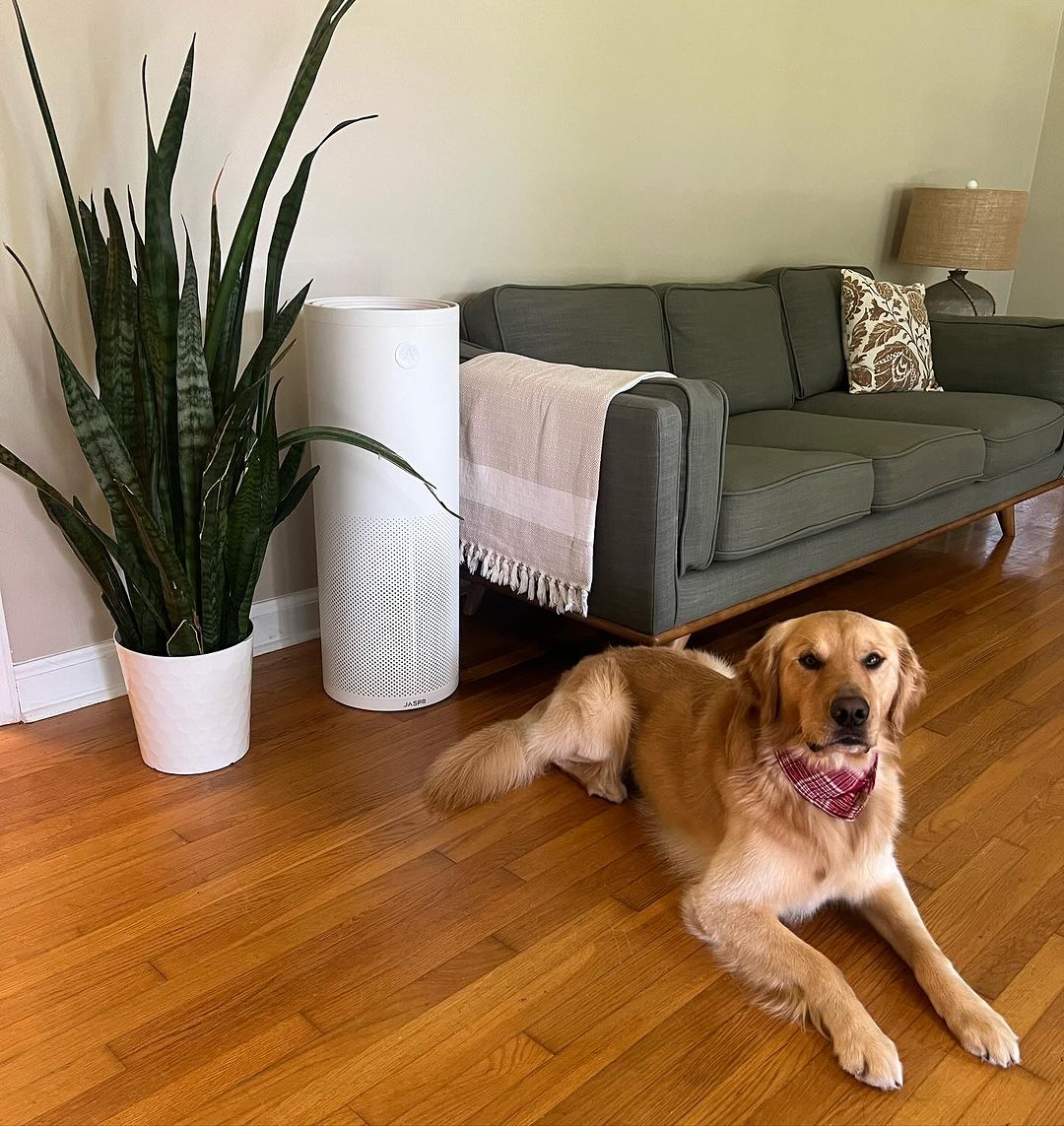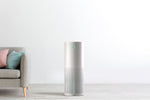Do You Really Need an Air Purifier: Essential for Health or Overhyped Gadget?

Perhaps, almost everyone who has come across this gadget has likely asked themselves:
"Do I need an air purifier?"
The answer is Yes if you generally seek options to make air cleaner in your household. The promise of these devices is simple: cleaner air that’s free of dust, allergens, pollutants, and odors.
However, certain groups of people can particularly benefit from using the device. They include:
- Families with kids or pets
- Households close to wildfire areas or other pollutants
- People with allergies or sensitivities to chemicals
- People with sleep problems or fatigue
- Households in humid areas prone to mold and odors
- Smokers
- Small households
Let's dig into all the details.
What Is an Air Purifier?
An air purifier is a device designed to remove contaminants from the air in a room or enclosed space. These devices typically use a combination of filters and fans to clean the air. Air purifiers have become increasingly common. As awareness of air quality and its impact on health grows, more people are considering purchasing one for their homes or offices.
The Importance of Indoor Air Quality
The air inside your home may not always be as clean as you think. Surprisingly, concentrations of organic pollutants are 2 to 5 times higher indoors than outdoors.
Even more, poor indoor air quality has been linked to many health problems. They range from short-term effects like eye, nose, and throat irritation to more serious issues such as asthma, allergies, and cardiovascular disease. All pollutants causing these issues come from different places.
Common Sources of Indoor Air Pollution
Indoor air pollution can stem from a variety of sources, often making the air inside homes more polluted than the air outside. These common sources are:
- Dust and dust mites accumulate on furniture, carpets, and other surfaces.
- Pollen can enter your home through open windows or on your clothing.
- Mold can grow in damp areas such as bathrooms and basements, releasing spores into the air that affect respiratory health.
- Pet dander can exacerbate asthma symptoms in those who are already asthmatic.
- Tobacco smoke releases harmful chemicals and particulates into the air.
- Volatile Organic Compounds (VOCs) are emitted from products like paints, cleaning supplies, and furniture.
- Frying and grilling can release grease particles and odors.
Does an air purifier solve these issues, and do you actually need one?
How Air Purifier Can Help You
Air purifiers with complex filters can solve the main pollution problems. For instance, Jaspr has a combination of:
- Pre-filter
- HEPA filter
- Activated carbon filter
Together, these make it highly effective in addressing a wide range of pollutants. Such powerful air purifiers can solve many issues.
-
Reduce Allergens, Dust and Mold Spore
Many people buy air purifiers to cut down on allergens, dust, and mold in their homes. If you have seasonal allergies or asthma or are sensitive to dust, an air purifier with a HEPA filter can help remove many of these particles, easing your symptoms.
For homes with pets, purifiers can also help reduce pet dander and hair in the air.
-
Improve Respiratory Health
Air purifiers can help people with breathing issues. These devices remove harmful particles like smoke, mold spores, and chemicals. For those with asthma or lung problems, breathing in these irritants can make symptoms worse. Purifiers filter out these pollutants. This can help prevent asthma attacks and improve overall breathing.
-
Eliminate Odors
Cooking smells, pet odors, and even chemicals from cleaning products can linger in the air. They make your home less pleasant to be in. Activated carbon filters in air purifiers can absorb these unwanted smells and leave your space smelling fresher.
-
Remove Harmful Chemicals
Indoor air can be contaminated with harmful chemicals from products like paints, cleaning supplies, or building materials. Air purifiers equipped with activated carbon filters can help remove these VOCs. Thus, they improve indoor air quality and reduce potential health risks.
-
Reduce Airborne Bacteria and Viruses
Some air purifiers can reduce airborne pathogens such as bacteria and viruses. While this feature may not eliminate every pathogen, it can add a layer of protection during cold and flu season, particularly in households with children or the elderly.
-
Help with Sleep Quality
Poor air quality can affect sleep, especially for people with allergies or respiratory issues. An air purifier can help remove irritants from the air. This allows for a more restful night's sleep. Many people report fewer disruptions during the night and waking up feeling more refreshed when using an air purifier in their bedroom.
So, Do I Need an Air Purifier?
The benefits of air purifiers are clear, but they may not be necessary for everyone. Here are some factors to consider when deciding if you need an air purifier:
Do You Have Allergies or Respiratory Issues?
If you suffer from seasonal allergies, asthma, or other respiratory conditions, an air purifier like Jaspr can provide significant relief. It helps remove allergens, dust, and other irritants from the air. For individuals with compromised respiratory health, an air purifier can improve air quality and reduce symptoms.
Do You Live in an Area with Poor Air Quality?
If you live in an area with high levels of outdoor pollution, such as near a busy road, industrial area, or in a region prone to wildfires, an air purifier can help mitigate the impact of outdoor pollutants that enter your home.
Plus, urban environments may have higher levels of particulate matter and smog. This makes air purifiers beneficial for reducing indoor exposure to these pollutants.
Do You Have Children or Elderly People at Home?
Children and elderly individuals are more vulnerable to poor air quality. Their developing or aging immune systems may be weaker. So, they are more susceptible to the harmful effects of allergens, bacteria, and airborne viruses.
Infants and toddlers, in particular, spend a lot of time crawling or playing close to the floor. There, dust, pet dander, and other allergens accumulate. An air purifier like Jaspr can reduce the amount of these irritants and lower the risk of respiratory issues or allergic reactions.
Similarly, elderly individuals are more prone to respiratory illnesses and weakened lung function. The fine particulate matter in polluted air can exacerbate chronic conditions like asthma or bronchitis.
Do You Have Pets?
Pet owners often deal with pet dander and hair floating around the home. If you're sensitive to pet allergens or simply want to reduce the amount of pet-related debris in your living space, an air purifier can help capture and remove these particles from the air.
Is Your Home Prone to Odors or Mold?
If your home frequently smells from cooking, pets, or dampness, an air purifier can help eliminate these odors. Or, if your home has moisture issues, such as a basement prone to dampness, a purifier can help reduce airborne mold spores that could affect your respiratory health.
Do You Live with Smokers?
Secondhand smoke is a known health hazard. It contains toxic chemicals that can linger in the air. An air purifier like Jaspr with activated carbon filters can reduce smoke particles and associated toxins. This device is an important tool for maintaining air quality in homes with smokers.
Is Your Area Prone to Wildfires?
For people living in regions affected by wildfires, smoke and ash can quickly deteriorate air quality. Even with windows closed, fine particulate matter from smoke can seep indoors. An air purifier can be crucial during wildfire season to remove these harmful particles from the air.
Do You Suffer from Poor Sleep?
If allergens, dust, or bad smells are affecting your sleep, an air purifier can help by making the air cleaner and creating a more peaceful environment for resting. For example, if you’re allergic to pollen and it keeps you awake at night, running an air purifier can filter out the pollen, help you breathe easier, and sleep more soundly.
Do You Live in a Small Space?
Apartments or homes with smaller square footage tend to have less natural airflow. This can cause pollutants to build up quickly. In these environments, an air purifier can help keep the air fresh and free from contaminants, particularly if opening windows isn’t always an option.
Are You Experiencing Fatigue or Headaches Indoors?
Poor air quality can contribute to symptoms like fatigue, headaches, and difficulty concentrating. Do you notice that you feel more sluggish or unwell when you're inside? An air purifier might help alleviate these issues by removing pollutants that may be contributing to your symptoms.
Are You Sensitive to Chemical Sensitivities or Fragrances?
For people sensitive to strong smells, like perfumes or cleaning products, an air purifier can help by removing these irritating odors. For example, air fresheners and other chemicals are not good for the indoor environment. But, if someone uses these in your household, an air purifier like Jaspr can clean the air for you to avoid headaches and breathing issues.
Wrapping up, air purifiers can be a great investment for improving indoor air quality and reducing allergens. They can really make your home healthier. Whether you need one depends on your specific situation and health. If any of the mentioned factors apply to you, getting an air purifier could help you breathe easier and feel more comfortable at home.
Back to Blog


